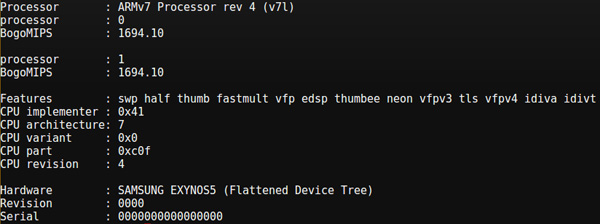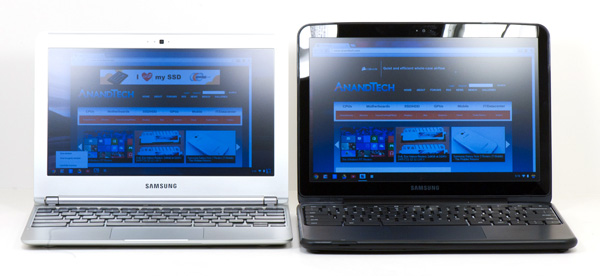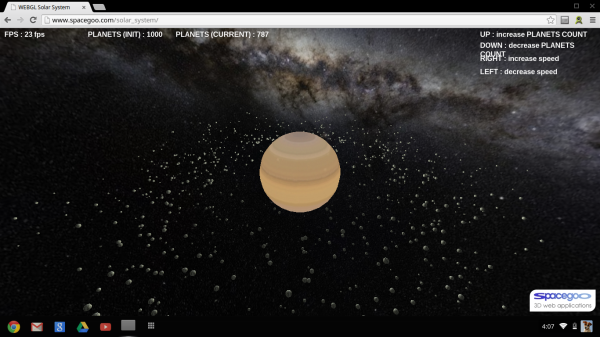Samsung Chromebook (XE303) Review: Testing ARM's Cortex A15
by Anand Lal Shimpi on October 31, 2012 9:00 AM ESTPerformance: Atom vs. ARM's Cortex A15
In our iPhone 5 review I included this crude diagram comparing the high level micro-architecture layouts of the current crop of mobile CPU cores. While most of the cores looked fairly similar, the one to really stand out is ARM's Cortex A15. A three issue, OoO core, the Cortex A15 was designed to put ARM in a completely new performance category.

For 2013, the Cortex A15 is expected to be the ARM CPU core of choice for the next wave of smartphone and tablet SoCs. NVIDIA's Wayne should integrate multiple Cortex A15s as well as competing solutions from Samsung and TI. Samsung's Exynos 5 Dual, found in the new Chromebook, integrates two ARM Cortex A15 cores running at 1.7GHz. As our first experience with a Cortex A15, I wanted to get a good idea for how it would compare to Intel's Atom. And now me comparing to the older Chromebook 500 makes sense. The Atom N570 in the older Chromebook is the closest approximation we have to the currently shipping Atom based mobile SoCs. There are a number of enhancements to the newer chips (particularly when it comes to power consumption), but the base core is very similar. It's clear that the Sandy Bridge Celeron based Chromebook is faster than this new Cortex A15 design, but how about the old dual-core Atom model?

As Chrome OS is built around the Chrome browser, our tests had to be largely JavaScript based unfortunately. The good news is that even given the nature of the benchmarks, we're able to get a good feel for performance between the two SoC platforms. Both systems were running the latest version of Chrome OS at the time of publishing.
| Samsung Chromebook Performance Comparison | ||||||
| SunSpider 0.9.1 | BrowserMark | RIABench Focus Tests | Kraken | |||
| Atom N570 1.66GHz | 1034.3 ms | 152780 | 1968 ms | 14229.5 ms | ||
| Exynos 5 Dual 1.7GHz | 690.5 ms | 217031 | 1192 ms | 9733.2 ms | ||
The Cortex A15 is fast. Across the board we're seeing a 40 - 65% increase in performance over a dual-core Atom. Although it's not clear how performance will be impacted as companies work to stick Cortex A15 based SoCs in smartphones with tighter power/thermal budgets, in notebooks (and perhaps even tablets) the Cortex A15 looks capable of delivering a good 1 - 2 generation boost over Intel's original Atom core.
The IE10 browser tests tend to agree with our JavaScript performance tests, although the CSS Maze Solver benchmark shows a huge advantage for ARM over Intel's Atom here.
| Samsung Chromebook Performance Comparison | ||||||
| IE10 Bubbles Test | IE10 Fishbowl | IE10 Maze Solver | ||||
| Atom N570 1.66GHz | 11 fps | 5 fps | 45 seconds | |||
| Exynos 5 Dual 1.7GHz | 17 fps | 8 fps | 17 seconds | |||
GPU performance is an even bigger advantage for the Exynos 5 Dual over Intel's old Atom N570 (GMA-3150 GPU). I ran three different webGL tests, each of which showed just how bad the old Atom GPU core was.
| Samsung Chromebook GPU Performance Comparison | ||||||
| WebGL Solar System | WebGL Cubes (500) | WebGL Aquarium (50) | ||||
| Atom N570 1.66GHz | 2 fps | 10 fps | 2 fps | |||
| Exynos 5 Dual 1.7GHz | 22 fps | 28 fps | 38 fps | |||
This comparison isn't really all that fair as the newer Atom cores use Imagination GPUs, although even then they are using relatively underpowered solutions compared to what Samsung is shipping on the Exynos 5 Dual.
The more relevant conclusions here apply to the CPU comparison. Next year Intel is expected to introduce its first new Atom core since the platform's introduction five years ago. The new architecture will bring an Out of Order execution core as well as a tangible performance increase. The question is whether or not this will be enough to fend off advances from Cortex A15 based designs.

The new Chromebook (left) vs. the old Atom based Chromebook (right)
In our Surface review I looked at Clovertrail Windows 8 tablet performance and put it a good 40%+ faster than NVIDIA's Tegra 3. If ARM's Cortex A15 is able to outperform Clovertrail by a similar margin, it could make the next generation of Windows RT tablets even more attractive. Keep in mind that we're looking at an older Atom platform here and not Clovertrail, so the performance deltas could shrink a bit.











149 Comments
View All Comments
Krysto - Thursday, November 1, 2012 - link
Which is going to be another year, by which point Android tablets will be on to the next-gen hardware.name99 - Sunday, November 4, 2012 - link
You have an odd definition of awesome."The display is functional but not very good. Build quality is decent but the new Chromebook is still a plastic notebook. Thankfully the keyboard and trackpad are both pretty decent."
Add in HDMI that doesn't work, a weird slot that isn't connected to anything, and the various other hassles described and I'm not sure exactly what the awesome here is.
Andhaka - Wednesday, October 31, 2012 - link
Seems a nice machine on paper, but I don't really know how much I would trust an "always online" Google machine with my data.Seems too much of a trade off.
Cheers
coder543 - Wednesday, October 31, 2012 - link
Because I'm sure that your secrets are personally being observed by Google since they're just ever so valuable. That's the only reasonable line of reasoning./sarcasm
They're just happy to make advertising revenue off of you, and since you'll likely use Google from whatever machine you have, it won't make much difference to not use this one. Also consider that if you were doing something highly sensitive, you could always walk over and turn on your computer, assuming you trust it, especially if you have Windows. I'd be less inclined to trust the good will of the parasites lurking around on there.
coder543 - Wednesday, October 31, 2012 - link
turn on your regular* computer/typo fixed
Andhaka - Wednesday, October 31, 2012 - link
Actually I work with a lot of NDA stuff (translations mostly) so yes, I really have a lot of secret stuff on my computer. ;) And believe me when I say I don't use google for ANYTHING on my work related projects. :)And the problem is not google per se, but having a machine that's not really usable if not online. I'm not sure, but I think there's no choice for editing text apart from Google Docs?
This is not an objective opinion. It's rather my personal view of this kind of machines. I'd like a super lightweight portable laptop, but not one that's tied hands and feet to an online service.
Just MY two cents. :)
jamyryals - Wednesday, October 31, 2012 - link
I'm pretty sure they support offline Google docs using a local disc cache. Still though, I'm pretty sure we are not the target for this platform.Andhaka - Wednesday, October 31, 2012 - link
Exactly what I was saying. For my kind of work it's not a viable solution. :)chrnochime - Wednesday, October 31, 2012 - link
So what do you use at work instead of Google then? Curious because AFAIK all other search engines do the same as Google...Andhaka - Wednesday, October 31, 2012 - link
That's the point. For really important NDA stuff we don't use search engines, AT ALL. :)I can connect to a company server with extensive documentation to serch for specific infromation on the project I'm working on (usually given to us by the committent), but I cannot really access Google or Bing and search for things i need.
For lesser project we use a company issued google profile for searches but no online document manipolation is allowed, meaning no Google Docs, Office Online, Dropbox, iCloud or anything similar. We have company online storage and we use VPN connections with tokens to generate the cyphers needed to connect. I cannot even send work files via email even if our email server is phisically based in our campus. :)
They take security very seriously where I work. ;)
Cheers